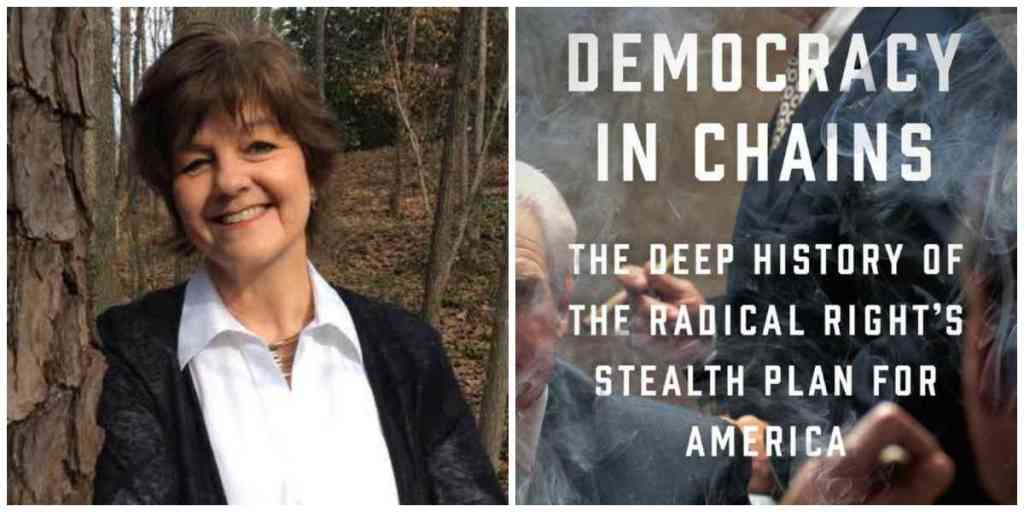[Republished from The Foundation for Economic Education.]
Nancy MacLean has written a postmodernist book, while her libertarian critics are writing modernist responses.
The critics point out the free-wheeling, fact-free, and conspiracy-tinged narrative MacLean has constructed, and they argue that logically her account does not fit the reality of James Buchanan’s life and writings.
All good and true.
Yet MacLean’s project is not about getting the “facts” right or about striving toward historical “truth.” And her fans are entirely unmoved by the criticisms. That’s because her project is an expressive projection of her group’s ideology in a politicized us-versus-them fray.
Rhetoric is a powerful tool in that fray and all of its devices – free association, ad hominem, overstatement, out-of-context quotation, guilt by association, emotionalism – are justified as necessities of the verbal warfare that intellectuals fight.
The Truth Doesn’t Matter to Postmodernists
MacLean is thus drawing upon a now-venerable postmodern tradition. Consider these examples.
MacLean’s former Duke University colleague Stanley Fish on why getting the facts right is now irrelevant: postmodern theory
“relieves me of the obligation to be right … and demands only that I be interesting.”
Richard Rorty and the substitution of rhetorical attractiveness for fact-based argument:
Conforming to my own precepts, I am not going to offer arguments against the vocabulary I want to replace. Instead, I am going to try to make the vocabulary I favor look attractive by showing how it may be used to describe a variety of topics.”
Michel Foucault and the use of contradiction:
Discourses are tactical elements or blocks operating in the field of force relations; there can exist different and even contradictory discourses within the same strategy.
Another of MacLean’s colleagues at Duke, Fredric Jameson, on why all must be politicized:
Everything is ‘in the last analysis’ political.”
Yet another of MacLean’s colleagues at Duke, Frank Lentricchia, on indoctrination as the postmodern intellectual’s task:
As a professor … one seeks not to find the foundation and the conditions of truth but to exercise power for the purpose of social change.”
Forget About Objectivity
Her libertarian critics’ responses are important and necessary, but they are not sufficient as long as they assume a modernist framework and make modernist arguments.
Two generations of postmodernism have laid the sub-cultural groundwork within which books like MacLean’s can get published by university presses, and that groundwork enables MacLean and her fans to simply set aside concerns for objectivity and double-down on their subjective commitments.
That postmodern philosophical groundwork must also be challenged, uprooted, and replaced.
Stephen Hicks is Professor of Philosophy at Rockford University, Illinois. This article was originally published on FEE.org. Read the original article.

I think they are in the process of mounting a coup, violent or otherwise, to take over. There won’t be a chance to uproot and replace.
Otto – far too pessimistic to me. I prefer the motto of Mises: “Trends Can Change.”